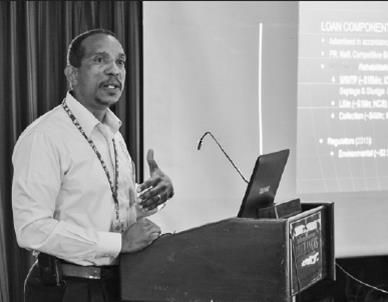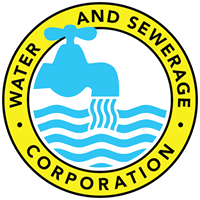News Archives
$15M IDB loan to address critical WSC works

New Providence’s wastewater infrastructure is generally in extremely poor condition and requires significant investment in all categories – collection, pumping and treatment – and a loan from the Inter-American Development Bank (IDB) will address $15 million worth of critical works, according to General Manager of the Water and Sewerage Corporation of The Bahamas (WSC) Glen Laville.
Laville illuminated for Guardian Business some of the remarks made by Deputy Prime Minister Philip Brave Davis in his contribution to the debate in the House of Assembly on the government’s mid-year budget communication. Davis reported to Parliament that between July 2014 to December 2014, a diagnostic report of existing sewer infrastructure had been prepared, which would enable the completion of a master plan for New Providence in the second quarter of 2015.
In addition to revealing the “extremely poor condition” of wastewater infrastructure on New Providence, Laville added that detailed designs and procurement are expected in the third quarter of the fiscal year.
“The master plan is expected to be completed soon and will provide a road map for the development of sewerage systems throughout New Providence. It will also address the economic and financial feasibility of various options/alternatives for an island-wide sewerage system and will be the basis for all future sewerage development in New Providence, once accepted,” he said.
Davis also told the House of Assembly last week that over the first half of fiscal year 2014/2015, WSC set about a plan to expand partnerships with the private sector through the “outsourcing of various activities”.
Laville told Guardian Business that this is planned but not yet executed. He explained that WSC already contracts several activities (such as water production through desalination).
“But when we speak about outsourcing it is related to functions such as engineering, fleet maintenance and construction. We do contract some of these services on a relatively small scale, but outsourcing will involve total transfer of those functions to the private sector,” he said.
He did not give a time frame for when such outsourcing activities are likely to happen, nor would he speak directly to the cost.
“We have indicated previously that the purpose of outsourcing is to improve our efficiency and effectiveness. Whenever we initiate the procurement of these functions, the determining factor of awarding any contract will be whether these objectives are met,” Laville said.
“So, price alone will not be the objective because we could get things done less expensively, but not at a better quality, or in a timely manner. Generally, quality, time and cost are the three main criteria for evaluation with quality covering issues such as reliability, capability, guaranteed level of service, to name a few,” he said.
The deputy prime minister also mentioned “offer opportunities” to its employees to improve effectiveness and efficiency, which Laville also explained.
“Under one of our industrial agreements, employees are given an exclusivity period to submit proposals where outsourcing or privatization are being considered and staff may be affected. We have extended this opportunity to employees under both unions,” he said.
“There are associated criteria that must be met and any potential award is subject to the parameters outlined above.
“Just to clarify, while there is the obligation and the extended benefit of an exclusivity period, award is not an obligation and is subject to the same guidelines that will shape a public procurement if the internal procedure does not yield a satisfactory result.”
Laville also told Guardian Business that the corporation’s water losses contract is going “extremely well”.
“Miya water has exceeded their 2014 target by almost one million gallons per day, they reduced losses by one million gallons a day more than their contracted target,” Laville said.
“When they started we were losing nearly seven million gallons per day; that is now less than four million gallons per day in only two years of the execution phase of the contract. Our eventual target is two million gallons per day in 2019.”
Laville also disclosed that WSC would be launching its customer win-back campaign. “We have more water than we can sell right now so we need new customers or ‘old’ ones to return. Over 90 percent of water supplied in New Providence is desalinated water… so the quality is excellent.”
K. QUINCY PARKER
Guardian Business Editor
quincy@nasguard.com

